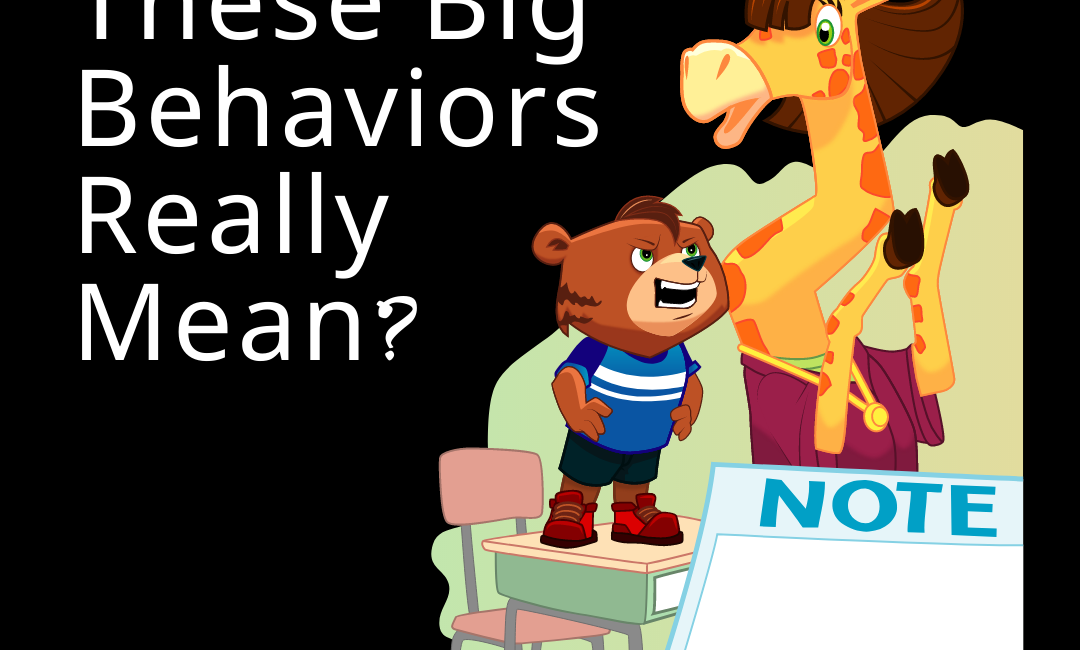“She’s so manipulative!”
“He is only nice when he wants something.”
Have these thoughts ever run through your mind?
Maybe you’ve heard something like it from families you work with? It doesn’t feel good! No one likes it when someone else is pulling the strings. And it feels even worse when it’s paired with other squirrelly behavior, like lying or stealing.
Let’s dig a little deeper.
If we’re honest, what is the story we are telling ourselves about the kiddo who lies and sneaks and “manipulates” their way through life? There tends to be a moral spin on it – bad choices, bad kid. Those behaviors start to get mixed up with identity: “She is a liar and a thief!” And then the shame spiral kicks in for parents: I’m a bad parent. Good parents don’t have kids who steal. I’m a failure.
Oof. That is a lot for a family to hold.
I’m going to throw something out there that might feel radical, but hang with me because I’ve seen it change lives!
Let’s reframe the narrative.
What if manipulative or sneaky behavior has been adaptive? What if lying and stealing and managing the big people around me has literally kept me alive? Maybe, just maybe, the story is not bad kid…bad parent…no hope. Instead, I see a kiddo who has learned to gather resources without getting close. Now that is something we can work on!
Did you know that in the absence of an affectionate relationship in the early days of life, the brain starts to trim down its oxytocin receptors (oxytocin is that happy, bonding chemical) to make room for opioid receptors? Yep, the brain starts to protect against close relationships in favor of numbing the pain of neglect and abuse. The brain starts wiring for solo survival, for scrappy self-provisioning instead of trust and connection with a safe grown-up.
That’s not the end of the story, though!!
Brains can change.
Here is a quick video explanation if you want to learn a little more.

The point is…years into living in a more safe and stable environment, you may still be dealing with lots of “squirrel moments.”
I promise…that delightful, relational little human is still in there!!
So now what?
“I still don’t want to be manipulated,” you tell me, “and I don’t want my kid lying and stealing.”
Yep, I totally get that.
Here are a few things that help…
- Check the story you are telling yourself about the child. Here are some ideas:
- Her brain learned to lie to protect itself at a very young age. I get to be part of rewiring that big, beautiful brain.
- Oops, that was a “squirrel moment.” I need to tune in and find some “upstairs brain moments” too. (Here’s a free resource to help.)
- He’s so good at trying to provide for himself. It’s going to take time for him to trust that I am safe and caring and reliable.
- Check the story you’re telling yourself about yourself. Instead of those pesky failure thoughts we have as parents and therapists, let’s try:
- Telling the truth is really hard for him, so we are working on that skill together. I’m a good parent for meeting him where he is and helping him build those tough skills.
- I can use play and kindness while setting a boundary. In a conversational tone, without judgment, I can say, “I know you learned some good squirrel survival skills, so before we leave the playroom, let’s empty those pockets in case any little acorn treats are tucked away. They’ll be here next time you come see me.”
- I really know my child and will lovingly set them up for success by keeping valuables locked up while they practice building self-control in situations where it would be easy to fall back into self-reliance.
- Notice the patterns. When we are stressed, we tend to rely on well-worn pathways in the brain. For a neurodivergent child or someone who has experienced early life trauma, that can mean falling back into “survival mode” habits.
- Provide lots of felt safety during stressful times.
- Ease transitions with objects or security items that can travel to and from locations with the child.
- Catch your thoughts when a squirrel moment occurs, especially if it comes after a period of time without any lying/stealing/hoarding. All is not lost! Keep nurturing those developing pathways to connection and safety and trust!!
- Notice the good! Remember, this is only one part of your child. Keep trying to find that delightful little spirit behind some of the “bad behavior.” I promise it’s there! Sometimes it’s well-hidden, for safety sake, but keep looking. We have a few posters to help you keep it in mind!
You can find some support for the journey at bit.ly/RTBparents.





